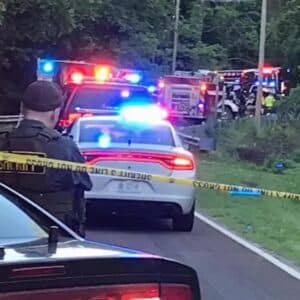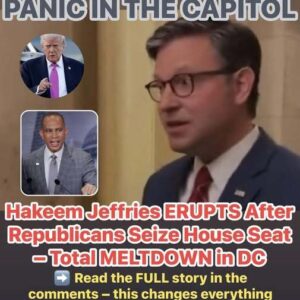“The Tow Truck and the Tipping Point: A Los Angeles Story About Law, Protest, and Conscience”
It began as an incident almost too strange to believe: a Los Angeles tow truck driver, in the middle of an Immigration and Customs Enforcement (ICE) operation, allegedly hooked and towed away one of the agency’s vehicles — laughing, filming, and streaming the moment as agents tried to make an arrest.
Now, that man — Bobby Nunez — faces a federal charge that could carry up to 10 years in prison. What unfolded that August day has become far more than a legal case. It is a collision point between law enforcement and public resistance, between state power and the raw instincts of a divided society.
The Incident: A Flash of Defiance
On August 15, federal immigration officers boxed in a suspect’s car, their emergency lights flashing as they moved in to detain an undocumented immigrant.
In the midst of the tense scene, Nunez allegedly pulled up, attached his tow line to an ICE vehicle, and began to haul it away — laughing, recording, and shouting toward the agents.
Federal prosecutors say he even swung open the suspect’s car door, striking an officer in the chaos.
A bystander’s video, later shared online by Rep. Bill Essayli (R-Calif.), captured the moment officers chased the departing tow truck on foot — a scene that looked more like satire than enforcement.
Within hours, the clip went viral. Within days, Nunez was facing federal obstruction charges.
The Aftermath: Law Meets Public Outrage
Homeland Security investigators quickly identified Nunez through TikTok videos, where he had previously mocked law enforcement and posted about his distrust of ICE.
Federal Magistrate Judge Stephanie Christensen signed the complaint, authorizing his arrest.
Acting U.S. Attorney Bill Essayli condemned the incident in stark terms:
“Apparently he thought it would be funny to interfere with our operations. Now he can laugh behind bars while he faces justice.”
To officials, the case is simple: interfering with a live federal arrest is a grave offense.
To others, it’s more complicated — a symptom of deep alienation from institutions of authority and the distrust that defines Los Angeles’ relationship with federal immigration enforcement.
A City on Edge
The case unfolds in a city that has long been a battleground over immigration policy.
Los Angeles is home to millions of immigrants — many of them undocumented — and has declared itself a sanctuary city, refusing to cooperate directly with ICE detentions.
Just days before the incident, a federal court ruled that the Trump-era deployment of the National Guard to suppress anti-ICE protests in L.A. was unconstitutional. The judgment reopened wounds from 2020, when armored vehicles rolled through immigrant neighborhoods in the name of “security.”
For federal officials, those memories justify vigilance. For activists, they symbolize overreach.
The tow truck — absurd and reckless as it was — became a symbol that tapped into both fear and fury.
The Moral Crossroads
The story of Bobby Nunez is not just about lawbreaking; it’s about the erosion of trust between power and people.
When civic faith collapses, defiance becomes entertainment — and justice becomes spectacle.
In the digital age, outrage can go viral faster than understanding. What was once an act of civil disobedience rooted in conscience has, for some, become a form of performance rebellion — gestures of defiance without the discipline of moral reflection.
If Nunez is guilty, the law must take its course. But his case also forces us to ask harder questions:
-
What kind of society drives citizens to mock justice rather than trust it?
-
What happens when law enforcement stops being a symbol of protection and becomes a symbol of fear?
-
And what moral space remains between obedience and rebellion — the space where conscience should live?
Reflection
The images of that day — a federal agent running after a laughing driver, a government vehicle being dragged away — are more than absurdities. They are emblems of disconnection.
Power, when stripped of humility, invites defiance. Defiance, when stripped of wisdom, invites chaos.
Between the two lies the fragile thread of justice with restraint — the only kind that can still hold a divided nation together.
Whether one sees Nunez as criminal or rebel, his story warns of something deeper: when outrage becomes our common language, mercy and reason go silent.
Perhaps the real crisis in Los Angeles that day wasn’t between a man and a federal agency — but between two sides of a country that no longer believes the other can be reasoned with.





